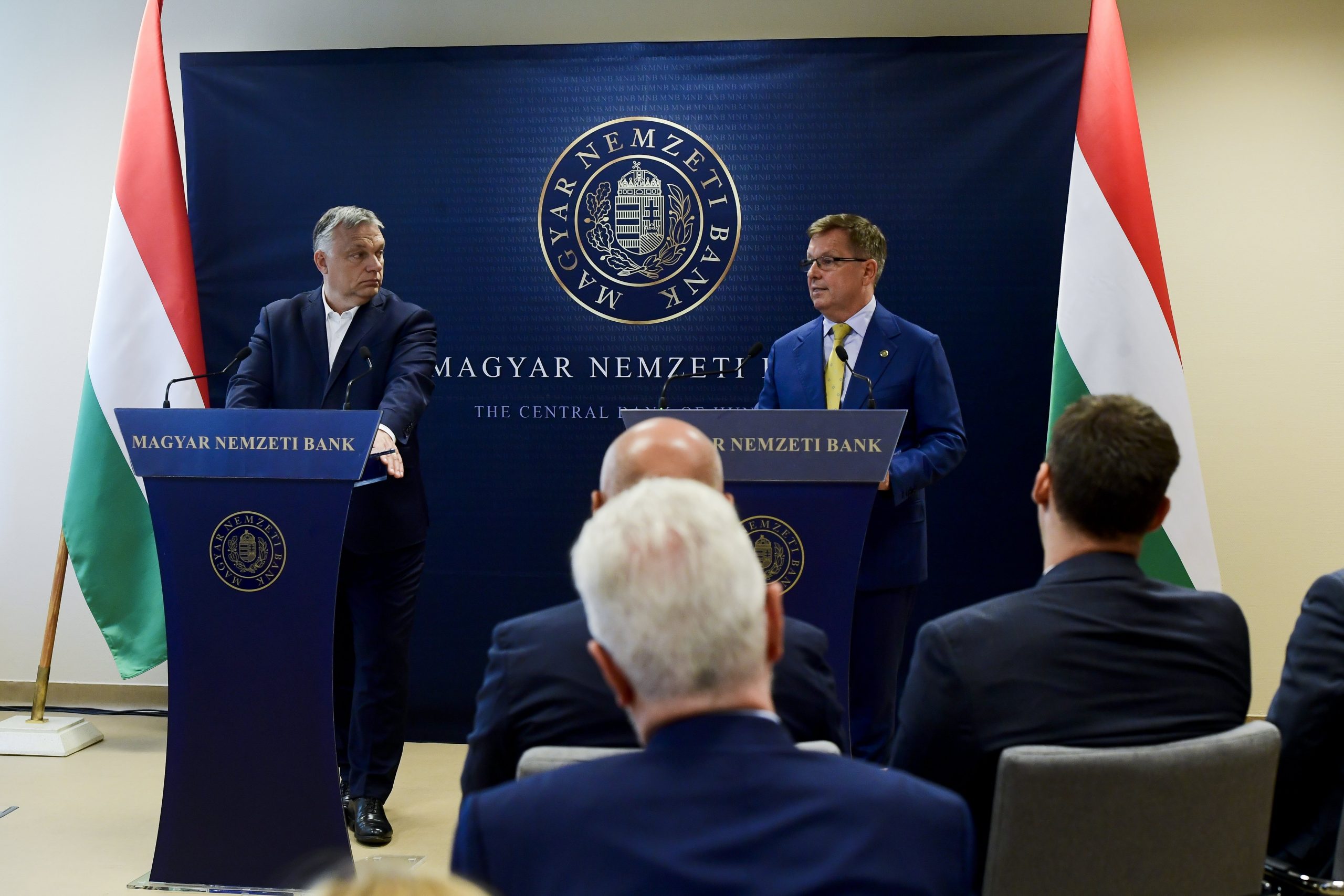
After having viewed the gold reserve kept by the National Bank of Hungary in the company of the central bank governor, Prime Minister Viktor Orbán stressed that it is important for people that there is a lot of gold here because in order for people to have money they need money, on the one hand, and for their money to have value, on the other. The value of money is guaranteed by three things: gold, the central bank and the government, he added.
“Turbulent times are coming, dangerous times are coming; the world will not pick up where it left off before the pandemic, and at times like this, we need reserves, collateral and security,” the Prime Minister said, thanking central bank governor György Matolcsy for the fact that the National Bank of Hungary provides that reserve, collateral and security for the country.
He recalled that a few years ago they became aware of movements on the gold market, and that the gold purchase and reserve policies of central banks had changed. They came to the conclusion that a conviction was emerging; the conviction that while there was ample money on the market and credit was available in abundance, times were coming where it was no longer safe to rely purely on credit, he continued.
By the Prime Minister’s account, whilst respecting the central bank’s independence, the government recommended that as regards the country’s gold reserve “we should have more, and we should have it here at home”. However, deciding no how much more it should be and when it should be brought back home was a decision that fell beyond the government’s competence.
Mr Orbán also drew attention to the fact that repatriating a country’s gold reserves from the traditional places of storage is a procedure lasting several years, and that in Hungary not only cash, but also gold is stored amidst cutting-edge conditions satisfying the highest international standards. This is not “a hovel,” Hungary is in a prominent position also as regards technological competition, the Prime Minister said.
Governor of the National Bank of Hungary György Matolcsy said this is a special and joyous moment, the nation’s gold is back home, Hungary’s gold reserve has increased. He said thank you to everyone who had taken part in the past one year in the repatriation of the 63 tonnes of gold that had now arrived in Hungary. He took the view that this is a very special moment in economic history because Hungary had never before had such a high gold reserve.
He recalled that in 2018, upon the Prime Minister’s strategic advice, the central bank decided to increase Hungary’s gold reserve ten-fold, while in the past year they have decided on another increase, and in consequence, at present Hungary’s gold reserve amounts to 94.5 tonnes.

He pointed out that with this “we have every reason to stand tall” as Hungary has moved from 56th to 36th position in the world rankings of gold reserves, and in the region we have now moved from sixth to third place; only Poland and Romania have higher gold reserves. At the same time, he continued, Hungary has become leader in the region as regards gold reserve per capita. He indicated that 0.31 oz of gold falls on each and every Hungarian which is a fair number, but is still only a third of that of Austria, meaning that we have some way to go yet.
He took the view that gold continues to remain very important, and it may well be that in the coming decade its importance will increase even further. Gold is a strategic issue for the nation as well as for the national economy, it is a line of defence. Those who have gold are not in debt to anyone, meaning that they keep gold without liabilities, he stressed.
He stated that the Hungarian gold reserve plays a very important role in the entire Hungarian foreign currency reserve, and so it is equally a security and strategic defence instrument.
He recalled that Hungary had always been “a country of treasures”; in Transylvania, one thousand tonnes of gold were mined in total. “We had gold back then, and we have it now again,” Mr Matolcsy said.

